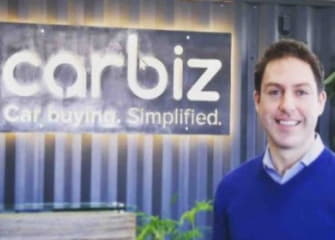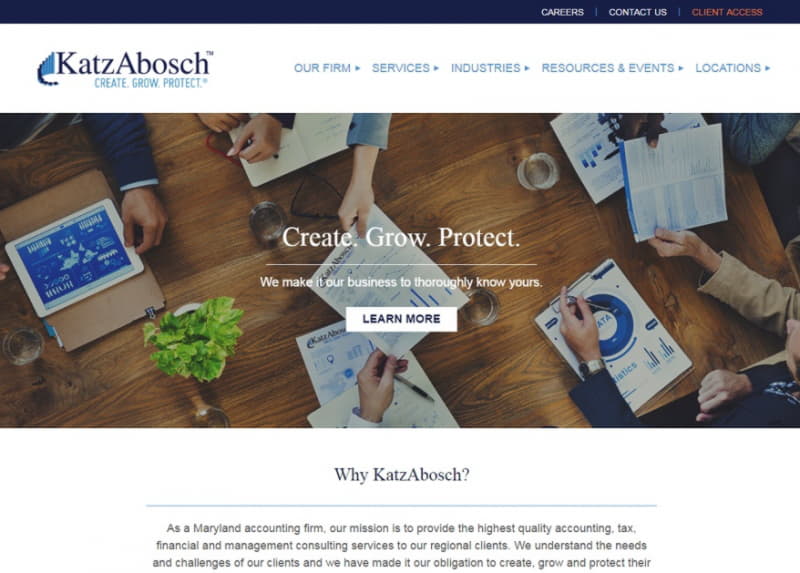
Evan Berney
Click here for Part I & Part II
A better way to buy and sell used cars
Evan Berney is the CEO of Carbiz. Headquartered in Baltimore, Carbiz is a vehicle dealership that provides customers with innovative ways to buy, sell, and trade used cars. The company allows shoppers to browse inventory and buy online, and offers complimentary one-year coverage, free delivery, and a five-day return policy. Carbiz is dedicated to giving back to the community through a partnership with ME to WE—a social enterprise that empowers consumers to change the world by making purchases and tracking their impact.
EDWIN WARFIELD: You allow consumers to buy online or in the store. Why not move completely online?
EVAN BERNEY: There had been this talk, and in reading articles, there was this idea of pushing to an online sales model that would allow customers to complete the transaction online and potentially ship cars out, have free return policies—sort of more of an Amazon.com approach to selling cars. There was at the time two companies in the country that were getting started. I was just trying to figure out what was next—what was next for us? I thought at one point the next move might be create a new brand that would be a competitor. It would have this online-only method of selling cars. Eventually, the end result was me thinking that the best move was to leverage what we had: leverage the business, the reputation. Also, really paramount to all of that was I don’t actually believe that the online-to-consumer is the end-all. I don’t believe that that is exactly the way that the business needs to go. I firmly believe that the customer needs to have the ability to complete the transaction that way or complete it the traditional way of coming into the dealership. You don’t want to alienate any customers. You want to give them the ability to shop how they want to shop. As consumers have the ability to do as much as research as they need to do, you need to give them the ability to choose their method of purchasing.
We dub it internally as “Carbiz 2.0.” It took shape, and all of 2016 was rebranding the company. We rebranded the company, we built out all the software for our websites, we changed technology on how our online footprint is and how consumers interact with our website, and that was really the start of it. It was “let’s change the logo, let’s change the website” and what I found, very quickly in, was this is going to have to change across all channels. We need to have every facet of our business match the personality of what we are trying to accomplish. That personality is really more of a shift in customer experience and really pushing to give the customers exactly what they’re looking for. That has to match the same experience when they walk in our doors of our showroom to when they walk in the doors of our service center, or if they are just coming in through a website anywhere, it all has to match. Picking up the phone and calling us, they need to feel that same feeling, when you walked into our showroom and, you really thought this is a really cool place, this is special—well, that’s the same feeling that people get when they go on our website, and we hope it is the same feeling they get when they talk to one of our employees or talk to one of our experienced specialists. It’s all to jive. The personalities need to be across all the channels.
Q. How have you responded to companies, such as Tesla, that try to cut out the middleman and sell vehicles directly to consumers online?
A, I learned feedback through consumers and through articles that are written, and I try to take what I see, and I take the best points of what they might have, and I try to avoid things that they’re being more scrutinized on or more critical of. The online consumer does exist, and that’s why I think it is so important to have the ability to give that consumer that style of purchasing.
Their main focus of why they’ve created these businesses is the same focus on what we try to do internally with the traditional side of our operation. Their focus is to act like they’re cutting out this dealer. The dealer is the stereotypical “bad” operation, and to a degree, that has been a very common perception of car dealerships, especially used car dealerships. There are many correlations that will show that the longer a customer is in a store, the more dissatisfaction they have with the purchase. Rather than say, “all right, the dealers are bad, let’s get rid of them,” well, we are a dealer, so let’s focus on what we can do to make that customer’s experience better. In terms of the time to cut down for the customers in a showroom, we’ve changed our entire process. We’ve eliminated the finance manager role. If you’ve ever bought a car before—which I’m sure you have—you go into a dealership, you deal with a salesperson. That salesperson ends up getting their manager involved, they do the whole back and forth, and then when you think it’s all done, you then have to go into another room, and meet another manager, and get sold a whole bunch of products. That is one part of the process that consumers just don’t like. It’s also very time-consuming because there may be other customers that are also waiting to see that manager, or maybe there are a couple of them, but there are not as many managers as salespeople.
What we decided here was to eliminate that position. Now, the customers only deal with the transaction from A-to-Z with their experience specialist. They don’t ever have to go into another room and meet a manager. Any products that get sold are going to get sold right at the point of sale from the salesperson that they have already grown to be comfortable with, and it’s a non-high-pressure sales tactic. Our salespeople are paid more of a salary-based compensation plan, so less pressure on the sales people as well. And it eliminates the time in the showroom. So, it sort of kills two birds with one stone. You could say it was taken from those operations because those operations try to eliminate the dealer—so why eliminate the dealer? Let’s get to the root of the problem. That’s what we’ve done.
Connect with Evan on LinkedIn
Sponsored by:
Founded in 1969, KatzAbosch is one of the largest CPA and business consulting services in the Mid-Atlantic region. Our mission is to provide the highest quality accounting, tax, financial and management consulting services to our clients. We understand the needs and challenges of our clients and we have made it our obligation to create, grow and protect asset value. The experts at KatzAbosch offer a full service solution while maintaining a tradition of ethics and incorporating the latest technology and unique business practices. Excellence in an industry often begins with how those closest to the company—its clients and employees—feel about it. For these individuals, KatzAbosch is a place where people and businesses excel and prosper. Our advisors can meet all of your service needs including; Audit & Accounting, Business Valuation & Litigation Support, Consulting, Estate Planning & Administration, Financial Institution Services, Forensic Accounting & Fraud Examinations, State and Local Tax (SALT), Taxes & Planning.


Edwin Warfield, CEO of citybizlist, conducts the CEO Interviews.
If you're interested in reaching CEOs, please contact edwin.warfield@citybuzz.co
Connect on LinkedIn




































